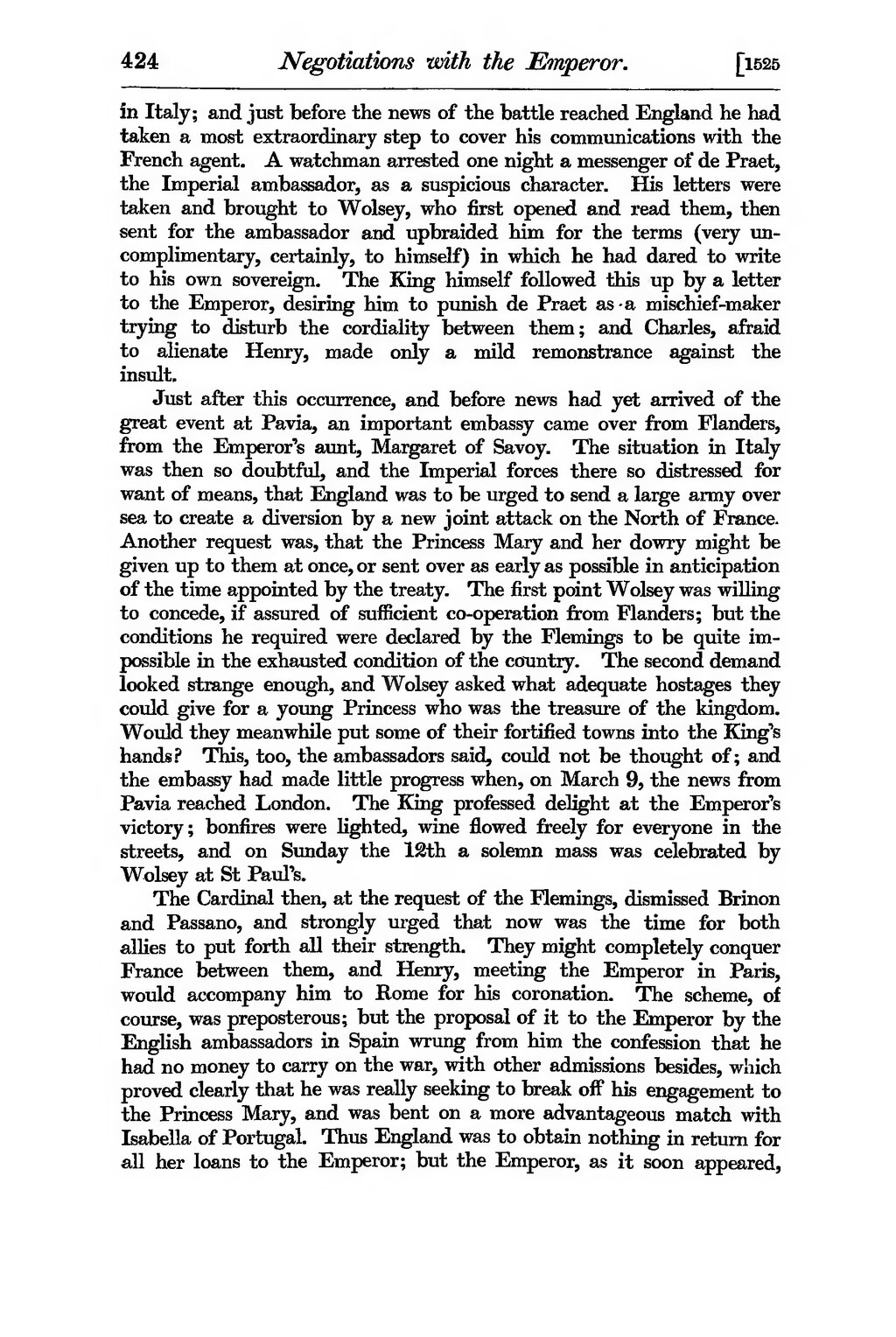in Italy; and just before the news of the battle reached England he had taken a most extraordinary step to cover his communications with the French agent. A watchman arrested one night a messenger of de Praet, the Imperial ambassador, as a suspicious character. His letters were taken and brought to Wolsey, who first opened and read them, then sent for the ambassador and upbraided him for the terms (very uncomplimentary, certainly, to himself) in which he had dared to write to his own sovereign. The King himself followed this up by a letter to the Emperor, desiring him to punish de Praet as a mischief-maker trying to disturb the cordiality between them; and Charles, afraid to alienate Henry, made only a mild remonstrance against the insult.
Just after this occurrence, and before news had yet arrived of the great event at Pavia, an important embassy came over from Flanders, from the Emperor's aunt, Margaret of Savoy. The situation in Italy was then so doubtful, and the Imperial forces there so distressed for want of means, that England was to be urged to send a large army over sea to create a diversion by a new joint attack on the North of France. Another request was, that the Princess Mary and her dowry might be given up to them at once, or sent over as early as possible in anticipation of the time appointed by the treaty. The first point Wolsey was willing to concede, if assured of sufficient co-operation from Flanders; but the conditions he required were declared by the Flemings to be quite impossible in the exhausted condition of the country. The second demand looked strange enough, and Wolsey asked what adequate hostages they could give for a young Princess who was the treasure of the kingdom. Would they meanwhile put some of their fortified towns into the King's hands? This, too, the ambassadors said, could not be thought of; and the embassy had made little progress when, on March 9, the news from Pavia reached London. The King professed delight at the Emperor's victory; bonfires were lighted, wine flowed freely for everyone in the streets, and on Sunday the 12th a solemn mass was celebrated by Wolsey at St Paul's.
The Cardinal then, at the request of the Flemings, dismissed Brinon and Passano, and strongly urged that now was the time for both allies to put forth all their strength. They might completely conquer France between them, and Henry, meeting the Emperor in Paris, would accompany him to Rome for his coronation. The scheme, of course, was preposterous; but the proposal of it to the Emperor by the English ambassadors in Spain wrung from him the confession that he had no money to carry on the war, with other admissions besides, which proved clearly that he was really seeking to break off his engagement to the Princess Mary, and was bent on a more advantageous match with Isabella of Portugal. Thus England was to obtain nothing in return for all her loans to the Emperor; but the Emperor, as it soon appeared,
